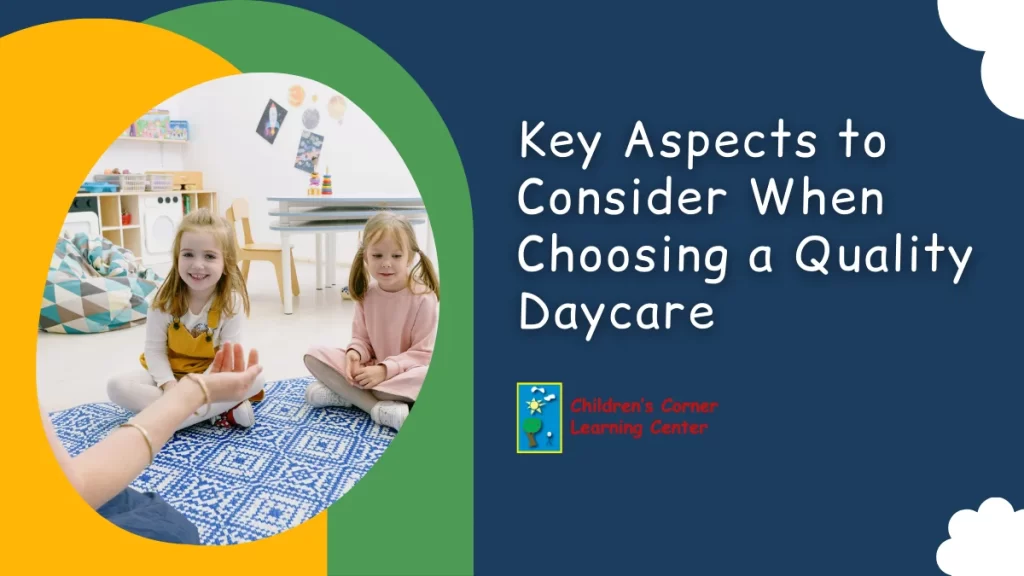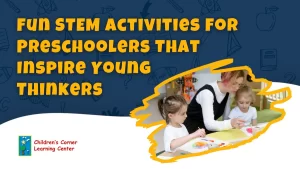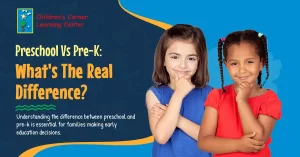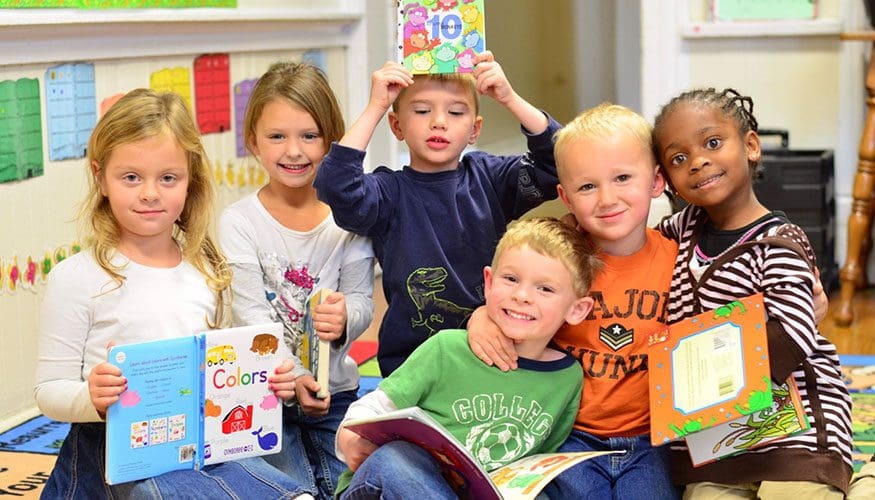Choosing the right childcare is a big decision; a learning experience daycare can provide the ideal environment for your child to thrive. These daycares go beyond essential supervision, offering enriching programs that foster academic, social, and emotional growth. From engaging activities to personalized attention, they are designed to help children explore their potential in a safe, nurturing setting.
These programs focus on hands-on learning and developmental milestones, encouraging curiosity, creativity, and confidence. Whether you’re looking for a place that supports early education or helps build foundational skills, a learning experience daycare ensures your child receives the care and opportunities they need to succeed.
The Importance of Play-Based Learning for Toddlers
Play-based learning for toddlers is essential to early childhood education, blending fun and discovery with critical developmental milestones. During these formative years, toddlers explore their world through play, which helps them develop cognitive, social, emotional, and physical skills. Engaging in hands-on activities and creative exploration helps toddlers build a strong foundation for lifelong learning and growth.
How Play Supports Cognitive Development
Play is a natural way for toddlers to learn problem-solving and critical-thinking skills. Through exploration, they make sense of the world and gain confidence in their abilities.
Examples of cognitive benefits include:
- Sorting and matching games: Teach toddlers how to recognize patterns and categorize objects.
- Simple puzzles: Encourage logical thinking and spatial awareness.
- Pretend play: Helps children develop creativity and understand real-world concepts.
These activities allow toddlers to experiment, make mistakes, and learn in an enjoyable, pressure-free environment.
Social and Emotional Growth Through Play
Play-based learning fosters social interactions and emotional regulation, teaching toddlers how to navigate relationships and express feelings.
Social and emotional benefits include:
- Group play: Activities like building blocks or playing house encourage cooperation and teamwork.
- Conflict resolution: Teaches toddlers how to share, take turns, and solve peer disagreements.
- Emotional expression: Role-playing games allow children to explore and articulate their emotions.
These experiences help toddlers develop empathy and self-confidence, key skills they’ll carry throughout their lives.
Physical Development in Play-Based Activities
Play-based learning significantly focuses on toddlers’ physical development as they refine fine and gross motor skills through movement and exploration.
Ways play supports physical growth include:
- Outdoor play: Running, climbing, and jumping help develop coordination and strength.
- Art and crafts: Finger painting or cutting paper improves fine motor skills.
- Music and dance: Singing and moving to music enhance rhythm, balance, and flexibility.
By incorporating active play into their daily routines, toddlers build their physical abilities for everyday tasks and future activities.
Fostering Curiosity and a Love for Learning
Play-based learning nurtures a natural curiosity that inspires toddlers to explore and ask questions. This curiosity lays the groundwork for future academic success.
Key aspects include:
- Open-ended activities: Encourage toddlers to think creatively and explore multiple solutions.
- Storytime and books: Spark imagination and language development.
- Sensory play: Activities like sand or water stimulate the senses and promote discovery.
When toddlers associate learning with fun, they’re more likely to gain a positive attitude toward education as they grow.
Understanding Daycare Education Benefits for Early Childhood Development

Daycare is more than just a safe place for children—it’s a stepping stone for their growth and development. High-quality daycare programs provide an enriching environment where children learn essential skills that set the foundation for future success. From academic readiness to social and emotional growth, the daycare education benefits during early childhood are transformative and long-lasting.
Academic Readiness: Building a Strong Foundation
One key benefit of daycare education is its role in preparing children for formal schooling. Children develop critical skills that support their academic journey through structured activities and engaging learning opportunities.
Daycare education promotes:
- Early literacy skills: Storytime and alphabet games foster vocabulary, comprehension, and language development.
- Basic math concepts: Counting, sorting, and pattern recognition introduce foundational math skills.
- Problem-solving abilities: Hands-on activities encourage critical thinking and decision-making.
These early experiences give children a head start, ensuring they enter kindergarten with confidence and enthusiasm for learning.
Social Development: Learning to Connect with Others
Daycare provides children valuable opportunities to interact with peers and adults in a structured setting. These interactions teach essential social skills that help children build relationships and navigate group environments.
Social benefits of daycare include:
- Teamwork and collaboration: Group activities teach children to share, take turns, and work together.
- Conflict resolution: Learning to handle disagreements and communicate effectively fosters empathy and patience.
- Building friendships: Interacting with peers helps children develop a sense of belonging and community.
These experiences are vital for a child’s success in school and beyond, where teamwork and communication are key.
Emotional Growth: Developing Confidence and Resilience
Daycare plays a significant role in aiding children understand and manage their emotions. In a supportive environment, children learn to express themselves and build self-esteem.
Emotional benefits include:
- Independence: Encouraging children to complete tasks independently builds confidence and self-reliance.
- Emotional regulation: Guidance from caregivers helps children identify and manage their feelings.
- Positive reinforcement: Praising achievements, no matter how small, boosts self-esteem and motivation.
These lessons in emotional growth prepare children to handle challenges and easily adapt to new situations.
Life Skills: Preparing for Everyday Challenges
Daycare education introduces children to routines and responsibilities that prepare them for life beyond the classroom.
Children learn:
- Time management: Following daily schedules helps children understand structure and routine.
- Self-care habits: Skills like washing hands and tidying up promote independence and responsibility.
- Respect for rules and boundaries: Understanding limits fosters discipline and respect for others.
These life skills are foundational for navigating both school and personal experiences. Daycare education invests in your child’s future, offering them the tools to thrive academically, socially, and emotionally.
Children develop the confidence, skills, and curiosity needed to succeed in school and beyond by participating in enriching programs during these formative years. Choosing a high-quality daycare program ensures your child is well-equipped for a lifetime of learning and growth.
Key Aspects to Consider When Choosing a Quality Daycare

Choosing the right daycare is critical for parents, as it directly impacts their child’s early learning experiences and overall well-being. A quality daycare provides more than just supervision—it offers a rich setting where children can grow, learn, and thrive. Evaluating several key factors defining a high-quality daycare is essential to making the best choice for your family.
Safety and Security
Your child’s safety should always be the top priority when selecting a daycare. A secure environment ensures peace of mind and allows children to focus on exploration.
Key safety features to look for include:
- Childproofed facilities: Outlets, furniture, and play areas should be safe and age-appropriate.
- Secure entry systems: Controlled access ensures that only authorized individuals can enter.
- Emergency preparedness: Staff should be trained in first aid, CPR, and evacuation procedures.
During your tour, observe the facility for cleanliness, safety protocols, and well-maintained equipment. Don’t hesitate to ask about their policies for handling emergencies and illnesses.
Qualified and Caring Staff
The quality of a daycare’s staff can make all the difference in your child’s experience. Look for a team of educators and caregivers who are passionate, experienced, and well-trained in early childhood development.
Consider these factors:
- Educational qualifications: Staff should have relevant certifications in early childhood education.
- Low child-to-teacher ratios: Smaller groups allow for more personalized attention and care.
- Positive interactions: Observe how staff engage with children—are they patient, attentive, and encouraging?
A daycare with caring and competent staff creates a supportive setting where children feel valued and understood.
Curriculum and Activities
A quality daycare offers a balanced curriculum that combines structured learning with opportunities for free play. These activities should support your child’s cognitive, social, emotional, and physical development.
Ask about:
- Daily schedules: Look for storytime, hands-on activities, and outdoor play.
- Age-appropriate programs: Activities should be tailored to meet the developmental needs of each age group.
- Creative and exploratory play: Programs should encourage curiosity, problem-solving, and self-expression.
A strong curriculum ensures your child is cared for and engaged in meaningful learning experiences.
Communication and Parent Involvement
Open communication between parents and daycare staff is essential for building trust and ensuring your child’s success. A quality daycare encourages parental involvement and informs families about their child’s progress.
Look for daycares that provide:
- Daily updates: Notes or digital reports on activities, meals, and milestones.
- Parent-teacher meetings: Opportunities to discuss your child’s development and address any concerns.
- Family events: Programs encouraging parents to participate in their child’s daycare experience.
Clear communication develops a strong partnership between parents and caregivers, benefiting your child’s development.
Conclusion
Choosing an adequate daycare is one of the most important decisions you’ll make as a parent, and a learning experience daycare offers the perfect blend of care, education, and enrichment. From play-based learning to tailored developmental programs, these centers provide the tools your child needs to grow, explore, and succeed. By considering safety, qualified staff, engaging curricula, and open communication, you’re ensuring your child thrives in a nurturing and stimulating environment.
Ready to find the perfect daycare for your little one? Schedule a tour at Children’s Corner Learning Center today and see how we can support your child’s growth and development. Visit this page or call us at (845) 250-5492 to book your visit. Let’s start this exciting journey together!









